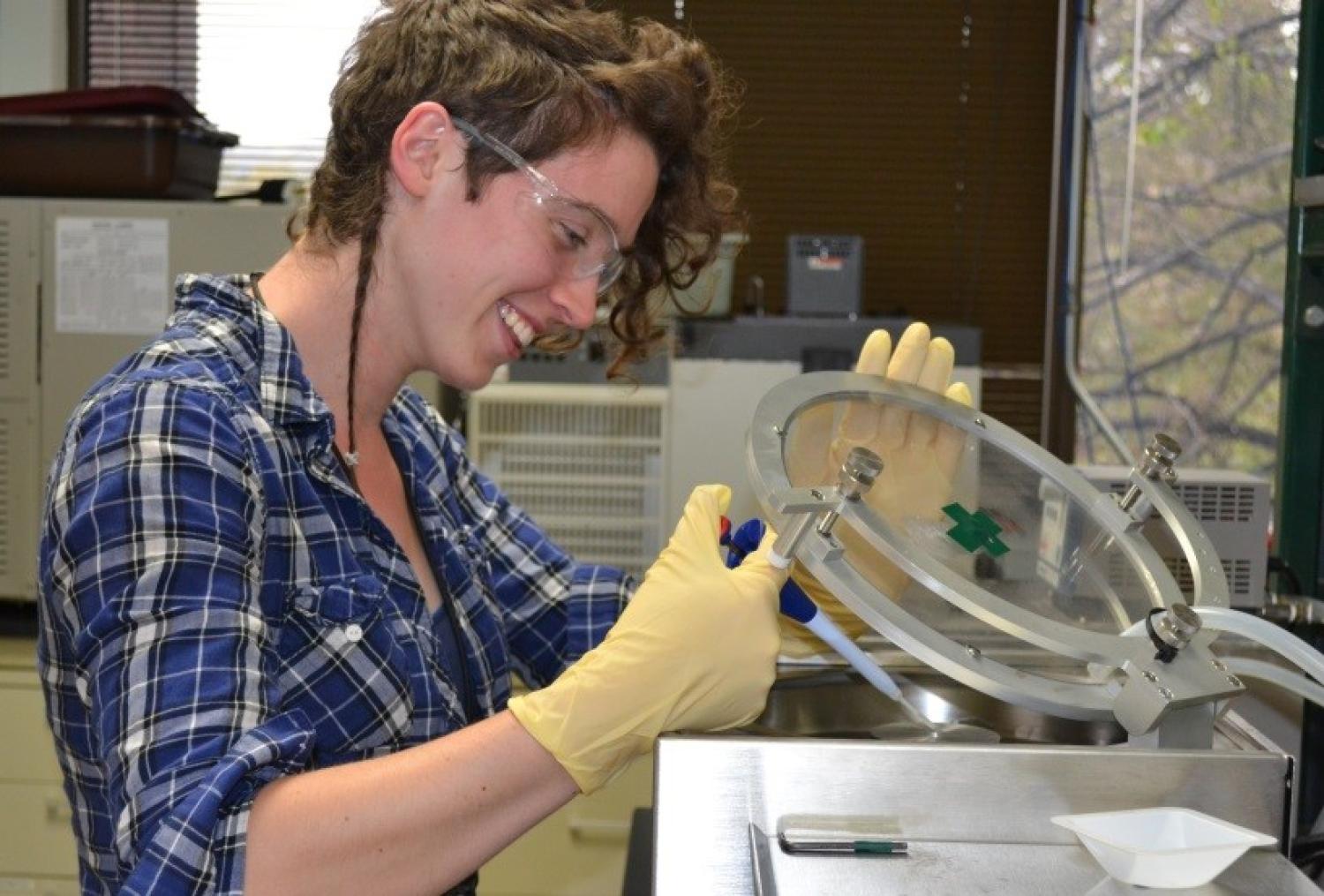Julia Hartig: Top-notch research, national lab connections

Hometown: Boulder, CO
Advisor:Alan Weimer
My path to engineering
I grew up right here in Boulder, Colorado. We moved when I was in sixth grade, and I fell in love with the active lifestyle and friendly atmosphere. I think the first time I realized I wanted to be an engineer was when I watched the animated movie Steamboy, a steampunk action film chronicling a young boy’s adventures as he tries to keep an industry-revolutionizing steam power source out of the hands of a power-hungry scientist. I was attracted to the complex and powerful, although fictional, mechanisms in the movie and the practicality of engineering design.
I started working in the battery department at the National Renewable Energy Laboratory after getting a bachelor’s in mechanical engineering from Purdue University. Several months into my job, I realized that many of the modern-day advances in energy and transportation technology were rooted in chemistry and materials science breakthroughs, not mechanical engineering. The majority of people at NREL with jobs I wanted had PhDs in chemical engineering, so I decided to transition to chemical engineering for my graduate studies.
Why CU Boulder?
I work on atomic layer deposition, which is a thin film deposition technique based on sequential gas-solid reactions. I am working on experimentally and computationally validating a new spatial ALD reactor that will help the field move from batch to continuous processing, making ALD more feasible for high-throughput applications like battery manufacturing.
CU is one of the world leaders in atomic layer deposition. My primary investigator has been working in the field for over a decade and cofounded a company, ALD NanoSolutions, based on research performed at CU. CU also has connections to national laboratories (NIST, NREL, etc.) and companies that do work I’m interested in, so a PhD at CU provides me with excellent networking opportunities.
CU is a beautiful place with more to offer than just quality research facilities. Work-life balance is important to me, and I’ve been impressed by how smart and athletic the researchers are here. It helps foster a competitive but friendly environment that pushes me to succeed in my own research.

